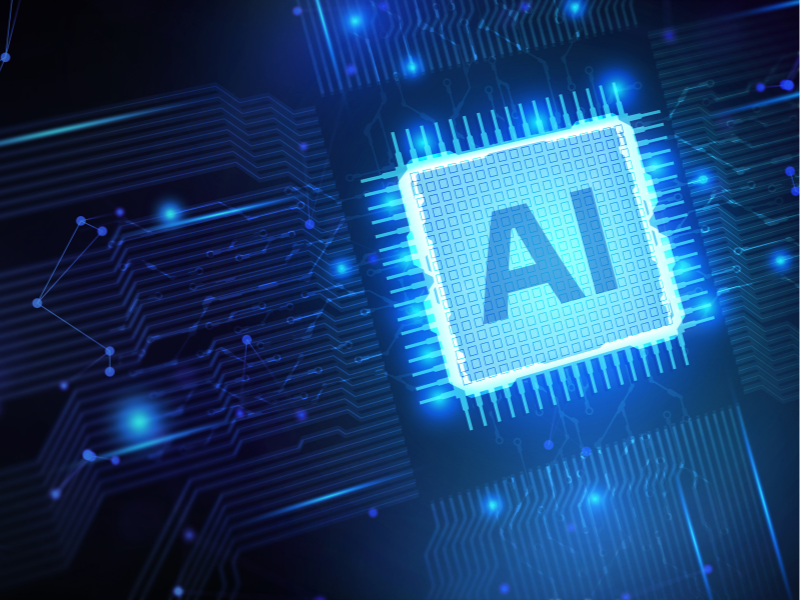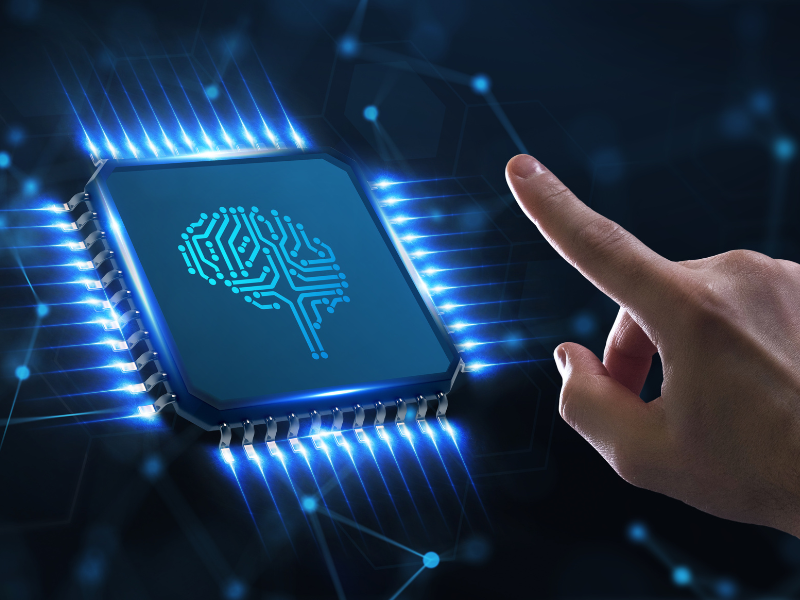AI Machine Learning has revolutionized various industries, from healthcare to finance, by enabling computers to learn and make intelligent decisions without explicit programming. In this article, we will explore the basics of AI Machine Learning, its applications, ethical considerations, challenges and opportunities, and future trends, and address frequently asked questions (FAQs) surrounding this exciting field.
The Basics of AI Machine Learning

What is AI Machine Learning?
AI Machine Learning is a subset of artificial intelligence that focuses on enabling machines to learn from data and improve their performance over time without being explicitly programmed. It involves the development of algorithms and models that can analyze and interpret large amounts of data to identify patterns and make accurate predictions or decisions.
The Role of Data in AI Machine Learning
Data plays a crucial role in AI Machine Learning. The quality, relevance, and quantity of data used to train machine learning models directly impact their accuracy and performance. Gathering and preprocessing data is a crucial step in the machine learning pipeline, ensuring that the input to the algorithms is representative and unbiased.
Supervised Learning
Supervised learning is a type of AI Machine Learning where labeled data is used to train a model. The model learns to map inputs (features) to outputs (labels) based on the provided examples. This approach is useful for tasks such as classification and regression, where the goal is to predict a target variable based on input features.
Unsupervised Learning
Unsupervised learning, on the other hand, involves training models using unlabeled data. The goal is to identify hidden patterns or groupings within the data without any predefined labels. Clustering and dimensionality reduction techniques are commonly used in unsupervised learning.
Reinforcement Learning
Reinforcement learning is a type of AI Machine Learning where an agent learns to interact with an environment and maximize its performance by receiving feedback in the form of rewards or punishments. The agent explores the environment through trial and error, gradually improving its decision-making abilities.
Applications of AI Machine Learning

AI Machine Learning in Healthcare
AI Machine Learning has revolutionized healthcare by enabling the development of predictive models to diagnose diseases, analyze medical images, and personalize treatment plans. It has the potential to improve patient outcomes, reduce costs, and increase efficiency in healthcare delivery.
AI Machine Learning in Finance
The finance industry has embraced AI Machine Learning for applications such as fraud detection, algorithmic trading, credit risk assessment, and customer relationship management. Machine learning models can analyze large volumes of financial data to identify patterns and make informed investment decisions.
AI Machine Learning in E-commerce
E-commerce companies leverage AI Machine Learning to personalize product recommendations, optimize pricing strategies, and improve customer experience. Machine learning algorithms analyze customer behavior, preferences, and historical data to provide tailored recommendations and enhance conversion rates.
AI Machine Learning in Manufacturing
In manufacturing, AI Machine Learning is used for predictive maintenance, quality control, and process optimization. By analyzing sensor data and historical records, machine learning models can predict equipment failures, identify flaws in the production process, and optimize production schedules to minimize downtime and maximize efficiency.
Ethical Considerations in AI Machine Learning
Bias in AI Machine Learning
One of the ethical concerns surrounding AI Machine Learning is the potential for bias in decision-making. If the training data used to build the models is biased, the resulting algorithms may perpetuate and amplify existing societal biases. It is crucial to ensure the fairness and neutrality of machine learning algorithms to avoid discriminatory outcomes.
Privacy Concerns
AI Machine Learning relies on vast amounts of personal data, raising concerns about privacy and data protection. Organizations must be transparent about the data they collect, how it is used, and ensure adequate safeguards to protect individuals’ privacy rights.
Transparency and Accountability
The lack of interpretability in AI Machine Learning models is another ethical challenge. It is important to understand how decisions are made and ensure that the models are transparent and explainable. Establishing accountability frameworks to address errors or biases in machine learning algorithms is crucial for building trust and mitigating potential harms.
Challenges and Opportunities in AI Machine Learning
Data Quality and Quantity
AI Machine Learning models rely on high-quality and diverse datasets for optimal performance. However, acquiring labeled data can be expensive and time-consuming. Additionally, biased or incomplete datasets can lead to inaccurate predictions and decisions. Finding ways to improve data quality and quantity remains a challenge.
Model Interpretability
As AI Machine Learning models become more complex, understanding their decisions becomes challenging. Model interpretability is crucial, especially in critical applications such as healthcare and finance, where transparency and accountability are necessary. Researchers are actively exploring methods to improve model interpretability.
Cybersecurity
As AI Machine Learning becomes more prevalent, the risk of cyberattacks targeting machine learning models increases. Malicious actors can manipulate training data or exploit vulnerabilities in the models to deceive or disrupt the system. Robust cybersecurity measures and ongoing research in adversarial machine learning are essential to mitigate these risks.
Job Displacement and Skills Gap
AI Machine Learning has the potential to automate certain tasks traditionally performed by humans, leading to concerns about job displacement. However, it also creates opportunities for new roles and the development of skills in areas such as data analysis, model development, and ethical AI. It is essential to invest in reskilling and upskilling the workforce to adapt to the changing job landscape.
Collaborative AI Machine Learning
Collaborative AI Machine Learning involves multiple AI systems working together to solve complex problems. It enables knowledge sharing, distributed decision-making, and improved performance. Advancements in federated learning, where models are trained on decentralized data, enhance privacy while maintaining collaborative learning capabilities.
Future Trends in AI Machine Learning
Deep Learning
Deep learning, a subset of AI Machine Learning that mimics the human brain’s neural networks, has shown remarkable success in various domains, including image recognition, natural language processing, and autonomous vehicles. Ongoing research in deep learning architectures and algorithms continues to push the boundaries of AI capabilities.
Explainable AI
Explainable AI aims to provide transparency and interpretability in AI Machine Learning models. It enables users to understand how decisions are reached, increasing trust and facilitating human oversight. Explainable AI is crucial in high-stakes domains where human lives or significant financial implications are at stake.
Federated Learning
Federated learning allows models to be trained collaboratively without sharing raw data. It is particularly relevant in situations where data privacy is paramount, such as healthcare or financial institutions. By leveraging local devices and data, federated learning enables AI Machine Learning without compromising data privacy.
AI Machine Learning for the Internet of Things (IoT)
The combination of AI Machine Learning and IoT has the potential to revolutionize industries such as transportation, energy management, and smart cities. By embedding AI capabilities directly into IoT devices, real-time analysis of sensory data can enable predictive maintenance, optimize resource usage, and enhance overall system performance.
Frequently Asked Questions (FAQs)

How does AI Machine Learning work?
AI Machine Learning works by training models on large datasets, allowing them to learn from patterns and make intelligent decisions or predictions. The models are trained using various algorithms, such as neural networks, decision trees, or support vector machines, depending on the specific task and data characteristics.
What are some popular AI Machine Learning algorithms?
Some popular AI machine-learning algorithms include:
- Logistic Regression
- Random Forest
- Support Vector Machines
- Gradient Boosting
- Convolutional Neural Networks (CNN)
- Recurrent Neural Networks (RNN)
- Generative Adversarial Networks (GAN)
Can AI Machine Learning replace human intelligence?
AI Machine Learning is designed to augment human intelligence, not replace it. While machines can perform specific tasks with high accuracy and efficiency, they lack the creativity, empathy, and complex problem-solving abilities of humans. Human oversight and collaboration with AI Machine Learning systems are essential to ensure responsible and ethical deployment.
How can businesses implement AI Machine Learning?
Businesses can implement AI Machine Learning by:
- Identifying suitable use cases where AI Machine Learning can provide value or solve specific challenges.
- Gathering and preparing the necessary data for training and testing the models.
- Choosing the appropriate AI Machine Learning algorithms and tools.
- Training and validating the models using the collected data.
- Integrating the models into existing business processes or developing new applications based on the AI Machine Learning capabilities.
Conclusion
AI Machine Learning has transformed various industries, offering tremendous benefits in healthcare, finance, e-commerce, and manufacturing. However, ethical considerations, such as bias, privacy, and transparency, must be addressed to ensure responsible development and usage. Despite the challenges, AI Machine Learning presents exciting opportunities for advancements in deep learning, explainable AI, federated learning, and IoT. By embracing AI Machine Learning and fostering human-machine collaboration, we can harness its potential to drive innovation, enhance decision-making, and create a better future.

